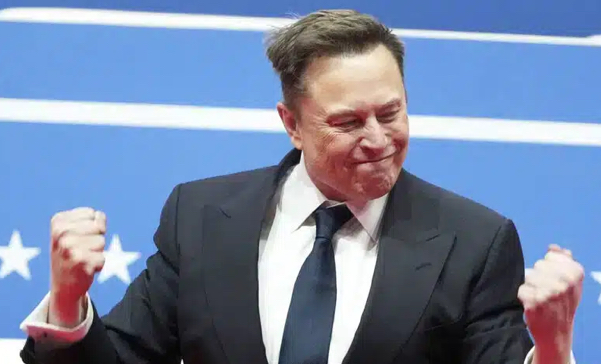DOGE’s task is to identify inefficiencies and reduce unnecessary government spending with recommended deadlines of Dec. 6, 2023, and July 4, 2026, respectively.
Elon Musk Eyes Blockchain For U.s. Government Efficiency
Elon Musk is exploring the idea of using blockchain technology to reorganize how the U.S. government operates, sources familiar with the talks tell Axios. Musk, whose official title is “Head of the new Department of Government Efficiency (DOGE)” has been brainstorming innovative solutions that will cut costs and increase government transparency.
It is part of President Donald Trump’s larger push to develop cryptocurrency-friendly policies. On Thursday, Trump issued an executive order that creates a working group on digital assets which affirms strong support for blockchain projects. Created through an executive order on Jan. 20, DOGE’s task is to identify inefficiencies and reduce unnecessary government spending with recommended deadlines of Dec. 6, 2023, and July 4, 2026, respectively.
According to the outlet, Musk and his team are exploring the use of blockchain, a decentralized digital ledger, as a method of tracking federal spending, securing sensitive data, processing payments, and even managing properties owned by the government. After DOGE representatives met with public blockchain companies in October 2023 to understand the technology.
The potential beneficiary of the effort’s payouts is consistent with the department’s name, which references the cryptocurrency Dogecoin, which operates on its own blockchain network. But which blockchain platform could DOGE use remains uncertain.
Many experts consider this a hopeful development. “An internal government blockchain could be used to track spending, documents and contracts in a way that’s fully secure and transparent,” said Sam Hammond, chief economist at the Foundation for American Innovation.
Despite this potential, critics question whether the blockchain is even necessary. Many would argue that similar outcomes can be achieved by existing database technologies at a lower cost. Public blockchains like those behind Bitcoin and Solana also cause problems, such as the absence of centralized governance, a quality that could make such chains inappropriate for government use.
“One issue with the government using a public Blockchain is that they would have no control over the entries,” said Campbell Harvey, a finance professor at Duke University.
Similar challenges have loomed over private-sector large-scale blockchain projects. Many projects have failed due to issues with governance and costs, although companies such as Walmart have been experimenting with blockchain.
However, some public institutions have successfully embraced blockchain. Avalanche Blockchain: California DMV Digitizes Millions of Car Titles Meanwhile, private companies like BlackRock have begun to issue assets on public blockchains too.
Musk’s mission, part of Trump’s broader desire to cut out government waste, may even serve to address the growing deficit problem facing the country. And Trump, who campaigned on fiscal prudence in the 2024 elections, has blamed bloated programs for the government’s financial plight.
Musk has already assembled a volunteer team of 100 to explore technological means, from blockchain. Though firmly in the planning stage, the effort highlights the Trump administration’s interest in modernizing aspects of government with new technology.

